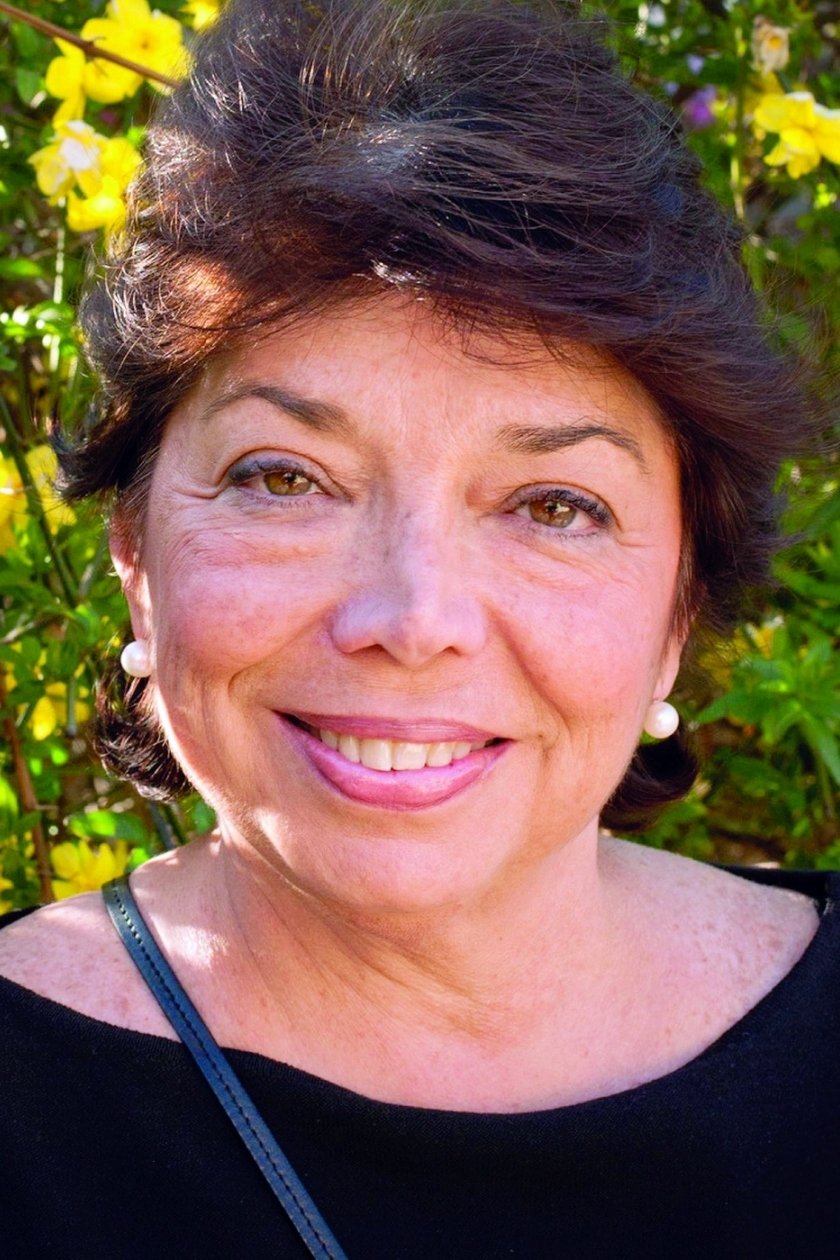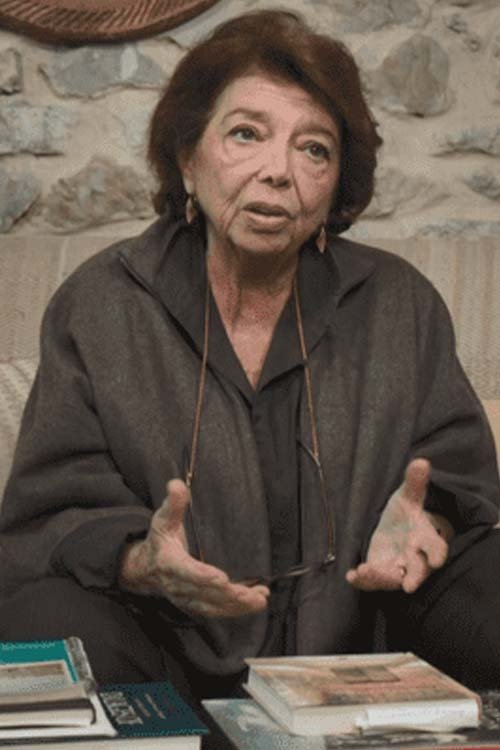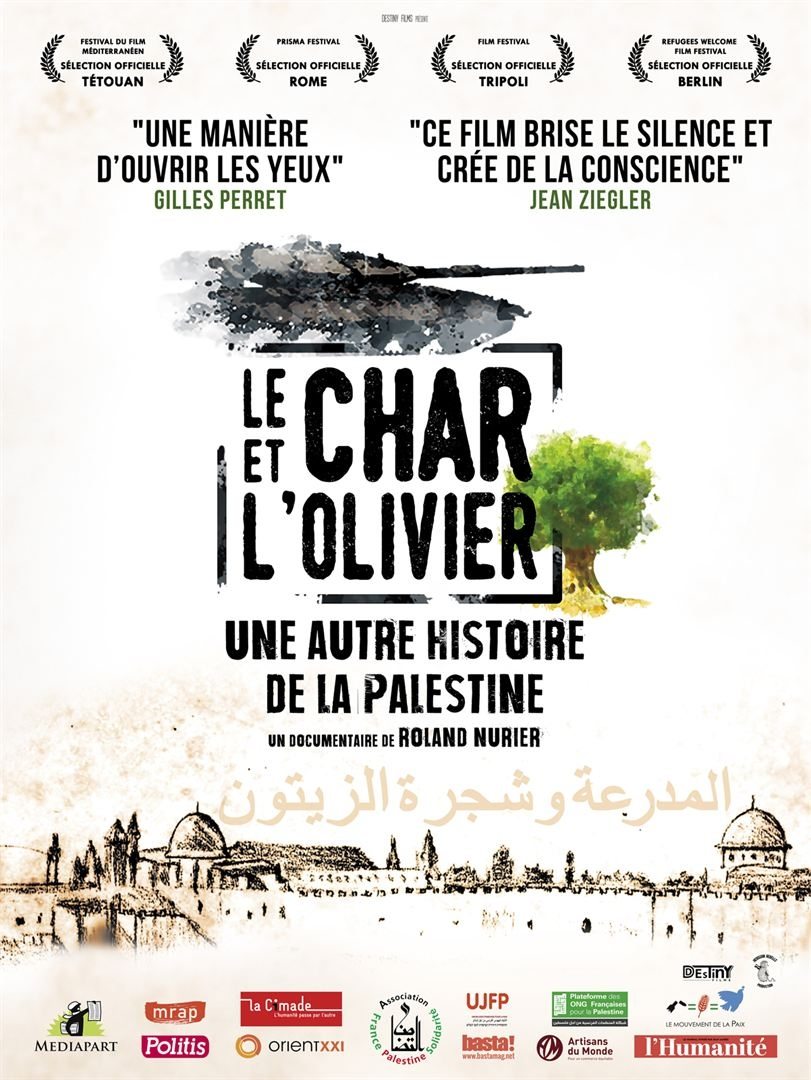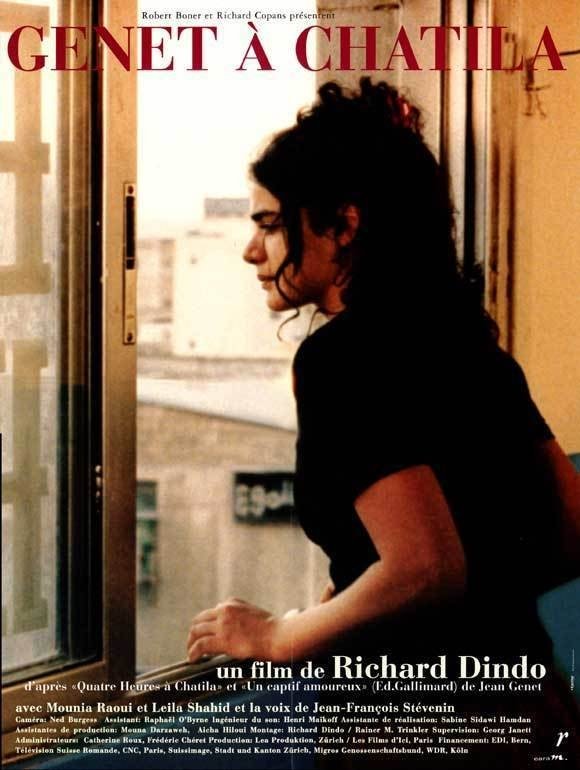

A former communist leader and activist for Moroccan independence, Edmond Amran Elmaleh left behind a vast body of literary work that masterfully articulates personal and collective memory. This cinematic letter, addressed to Elmaleh by director Simone Bitton, weaves together excerpts from the writer’s texts, testimonies, and archival images, and the filmmaker’s own words to illustrate the memory of a captivating and erudite man haunted by the parallel tragedies of the departure of Jews from Morocco and the exodus of Palestinians uprooted from their land.


The Tank and The Olive Tree recalls a certain number of forgotten fundamentals and sheds new light on the history of Palestine. By combining geopolitical analysis, interviews with international personalities who are experts on the subject and testimonies from Palestinian and French citizens, this documentary offers the keys to understanding what the media call the Israeli-Palestinian conflict. Enough to rid people's minds of clichés and prejudices! If The Chariot and the Olivier is intended to be educational, it speaks above all of a magnificent territory, and of a people who constantly affirm that “to live is already to resist”...

A documentary about the French writer Jean Genet and his relations with the Palestinian revolution. One day after the September 1982 massacre at the refugee camp of Shatila in Beirut, Genet visits the camp. Suffering from throat cancer and having written nothing in years, Genet begins to write on the threshold of his death about this disturbing new experience. It leads to his last book, entitled “Un captif amoureux” in which Genet reflects on the Palestinian revolution, its defeat, and the loss of one’s homeland. In this film a young French woman of Algerian origin who is reading the book returns to the landscapes of the Palestinian resistance and the refugee camps full of exiles, in search of Genet.
Leila Shahid (born in Beirut in 1949) is a Palestinian diplomat. She was the first woman ambassador of Palestine, serving the PLO in Ireland in 1989, in The Netherlands in 1990, then serving the PA in France where she had taken office in Paris in 1993. From 2006 to 2014, she was the General Delegate of Palestine to the EU, Belgium and Luxembourg. She is the daughter of Munib Shahid and Serene Husseini Shahid and thus related to the Al-Husayni clan. Shahid's parents were from Acre and Jerusalem, but she grew up with her two sisters in exile in Lebanon. After studying anthropology and psychology at the American University of Beirut, Leila worked in the Palestinian refugee camps until 1974 when she began her doctorate in anthropology in Paris, where she met Jean Genet. In 1976 she was elected president of the Union of Palestinian students in France. In September 1982, Shahid and Jean Genet went to Beirut. They arrived during the Sabra and Shatila massacres. Genet's account was published in "La revue d'études palestiniennes", in an article entitled Quatre heures à Chatila (Four Hours at Chatila) -- Catherine Biscovitch's film "Dancing Among the Dead" was based on this article by Genet. In 2004, she was with Palestinian leader Yasser Arafat during his final days. She was a longtime director of "La revue d'études palestiniennes" (The Review of Palestinian Studies), while serving as a board member right now. The Russell Tribunal on Palestine was established in response to a call by Leila Shahid and Ken Coates (Chairperson of the Bertrand Russell Peace Foundation), Nurit Peled (Israeli, Sakharov Prize for Freedom of Speech 2001). Though not a Baha'i, she is the great-great granddaughter of the Baha'i prophet Baha'u'llah through her father, who was a grandson of Abdu'l-Baha. Her father was excommunicated from the Baha'i Faith for opposition to Shoghi Effendi. Source: Article "Leila Shahid" from Wikipedia in English, licensed under CC-BY-SA 3.0.
By browsing this website, you accept our cookies policy.